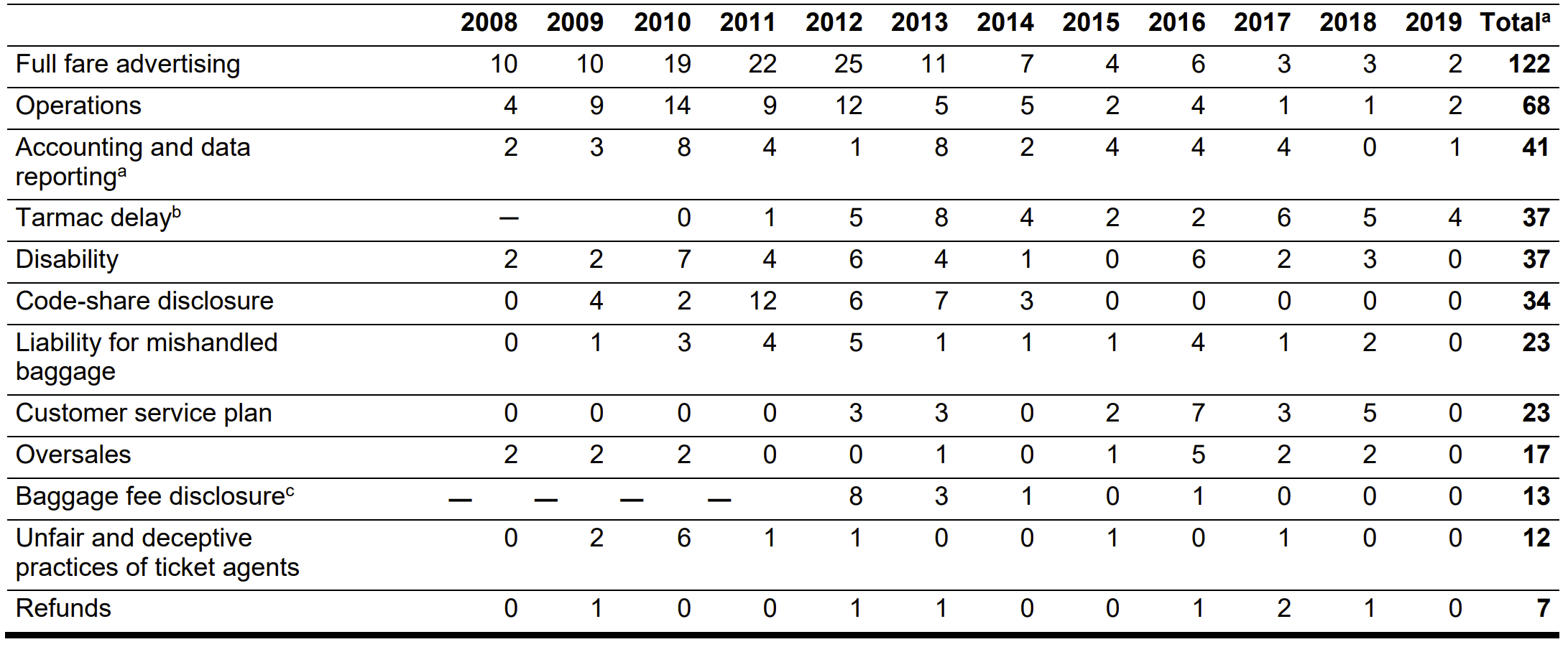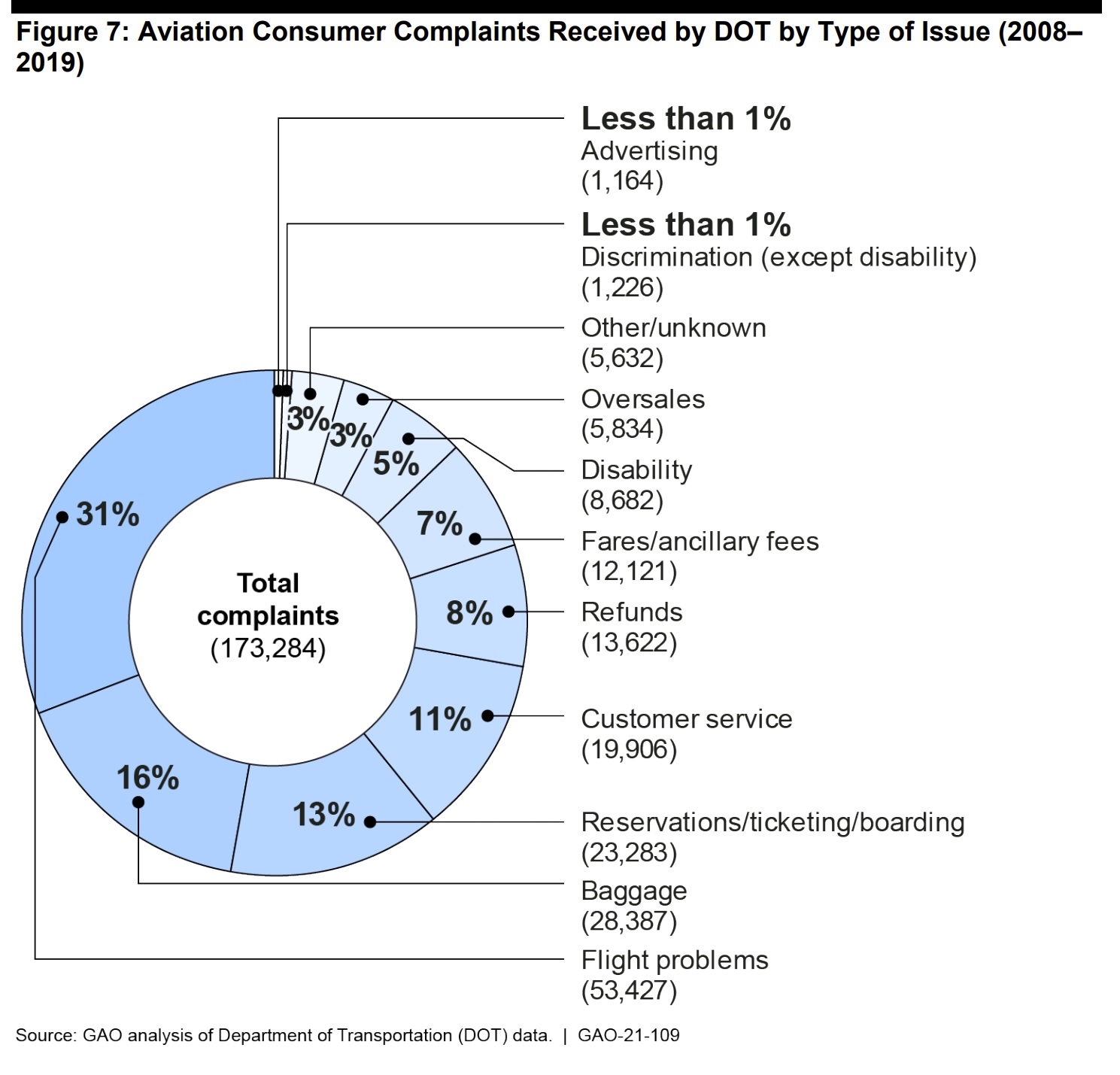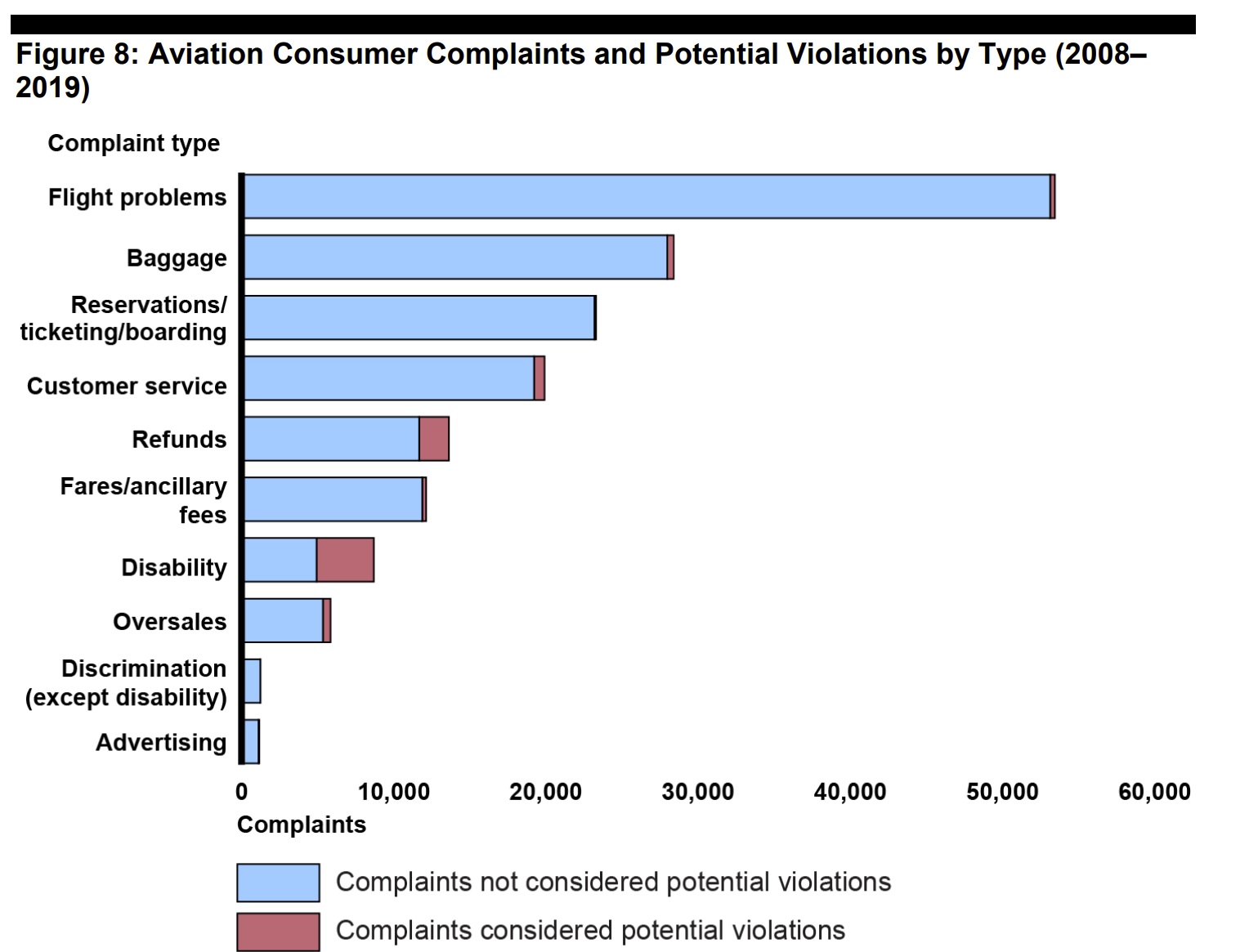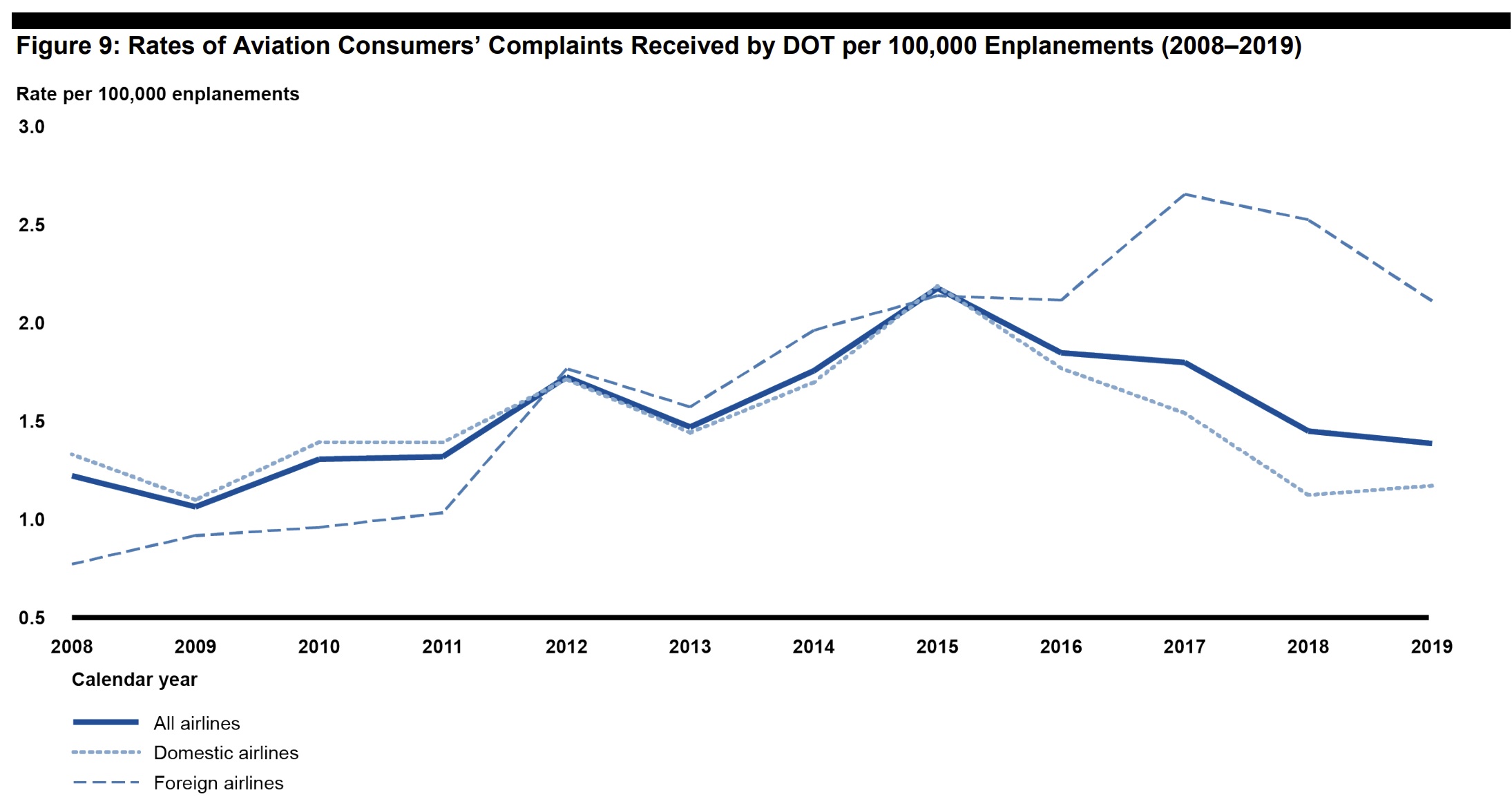The Government Accountability Office published a new report taking the Department of Transportation consumer complaint process to task noting that DOT doesn’t publish the results of 81% of their investigations. There’s little transparency into DOT complaints.
Aside from the recommendation to share more information about the process, what’s most interesting I think is the window that the report itself provides into what consumers are complaining about, and what complaints the Department of Transportation actually listens to.
When the Department of Transportation finds a violation, they generally enter into a consent order with the violator. That usually lays out a monetary penalty for the violation, and it may forgive part of the penalty provided that they take steps to avoid future violations. It may also give them credit for money they’ve already spent either remedying the problem or compensating consumers.
In the last 12 complete years the DOT has entered into 434 consent decrees. Here are the topics they’ve fallen under by year:

Most complaints center around flight problems, baggage, and reservations or ticketing issues. That was true prior to 2020 – this year of course most complaints have been able airlines refusing to issue refunds for flights they cancelled (United and JetBlue were especially egregious earlier in the pandemic but have generally found religion under threat of DOT enforcement).

What’s telling, I think, is the areas where DOT tends to find validity in complaints. Overall DOT sides with airlines almost all the time. That’s not surprising – airlines do know the law and more often than not stay on the safe side of it. Most customer complaints aren’t actually violations of law.
However DOT is most likely to find potential violations in complaints around disability accommodation and failure to provide required refunds.

The Department of Transportation’s Inspector General, by the way, determined DOT improperly ignored consumer complaints about frequent flyer programs. Those don’t get their own category, but appear to be classified whether the loyalty program complaint is about award tickets (reservations), about fees, etc. This is especially important because under the Supreme Court’s Northwest v. Ginsberg ruling the only avenue of redress consumers usually have regarding frequent flyer programs is the Department of Transportation.
Still airline consumer complaints overall seemed elevated between 2014 and 2016, and then began a downward trend. Overall complaints about U.S. airlines peaked in 2015 and have been significantly declining, while remaining at higher than normal levels for international airlines – setting a record in 2017.

Airlines by the way have a whole Christmas list of rules they want repealed. DOT didn’t grant that list, and if there’s a change in administration in January they’re unlikely to do so. However it’s something to keep an eye on in the event the President isn’t re-elected – the DOT could give a midnight gift to airlines prior to January 20.

